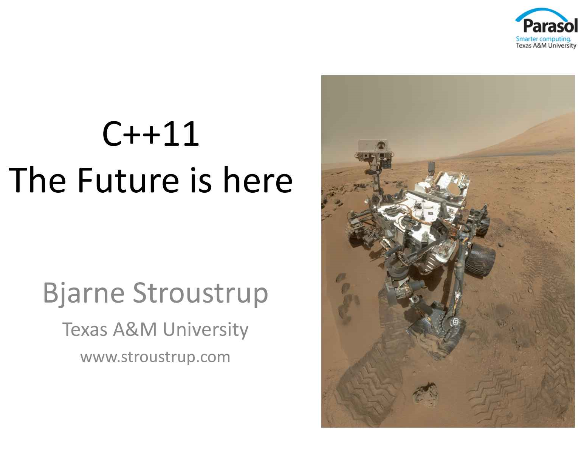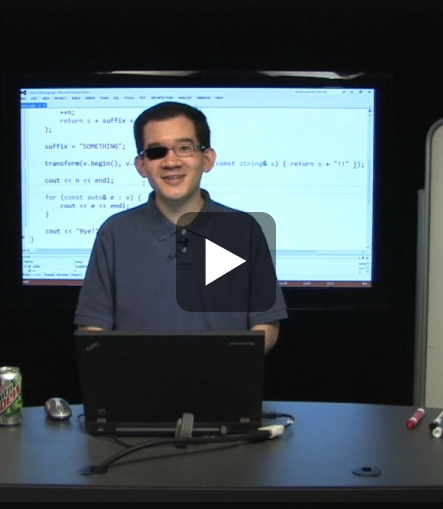C++11: The Future Is Here -- Bjarne Stroustrup

C++11: The Future Is Here
Bjarne Stroustrup
Summary: Bjarne Stroustrup keynotes on what C++ is in general, how C++11 makes simple things even simpler, resource management, generic programming, and concurrency.

 New at InformIT:
New at InformIT: The solution to the latest GotW problem is now available:
The solution to the latest GotW problem is now available:
 The two latest C++ lectures by Stephan T. Lavavej, the eponymous STL, are now available:
The two latest C++ lectures by Stephan T. Lavavej, the eponymous STL, are now available: The keynote addresses for
The keynote addresses for